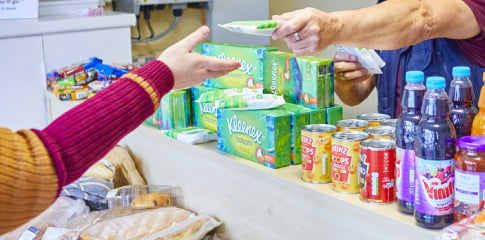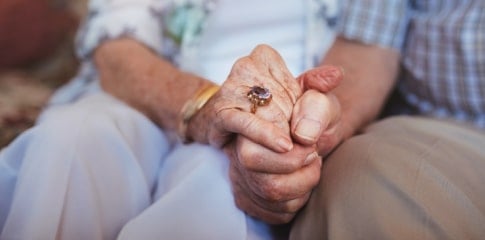As a frontline medic who worked on a Covid-19 ward for the NHS, my experience of the pandemic and lockdown has probably been a little different to most. Every day felt quite surreal and sometimes overwhelming, but I think it’s fair to say that this was also the case for so many. Each of our experiences of lockdown are unique and the way in which we mentally adapt to the ‘new normal’ will be so too – and that’s ok.
In my downtime, I’d talk to friends and family about their own experiences of lockdown. What I found was that many of them had a lot of heightened anxiety around Covid-19 and were coming to me for advice and ways to manage it.
We should all be following government advice – wearing a facemask, washing our hands, maintaining social distance.
I wanted to share some other tips that I’ve found helped me strengthen my positive mental health during lockdown.
- Hygiene is key
One of the first things they teach you when training to be a doctor is the importance of hygiene. We are taught from day one how to wash our hands properly to ensure we practice strict hygiene measures.
Now, I find that on top of good hand-washing hygiene, I actively use hand sanitiser all the time - when I’m not in work, whenever I travel, whenever I move from place to place. It’s one of the best ways to stop the spread of germs and maintain some peace of mind that you’re not passing anything on.
- Form a routine
I know I had a very different daily routine to most people during lockdown – whilst the majority were asked to stay home to keep themselves safe, I was getting up every day to go to the hospital for my job. But for most people, staying indoors massively disrupted their daily routine and meant they had to adapt to a new way of living.
Creating a new routine that you stick to will give your day structure and purpose, which is proven to be crucial for our mental health. A few easy changes to implement include eating your meals at set times, switching off from work at a certain time where possible, calling a friend or relative after work at 7pm every night will all help!
- Get outside if you can
At the beginning of lockdown, I got into a bit of a funk – I wasn’t exercising at all and eating whatever. The biggest thing that got me through lockdown, even when we were only allowed one form of exercise a day, was running. Some days it was 3k, some days it was 10k, but just sticking to that exercise every day really helped give me a mental escape.
We know that exercise can boost our mood massively, and not just in the short term. Regular exercise reduces the risk of depression and anxiety longer term too. So, it’s important to try to get the blood pumping each day, even if it’s a dog walk or an online yoga class.
- Good nutrition
There is a clear link between food and nutrition and mental health. A healthy diet can support our mood, and this is because of our gut-brain axis, which is this two-way connection between our brain and our gut. The best way for me to describe that connection is to think about those butterflies you feel in your tummy if you’re nervous or excited, or if you’ve got a strong gut feeling about something that you can’t ignore. Both gut and brain are impacted by a healthy diet. Essentially, happy gut, happy brain.
There is strong evidence that a Mediterranean-style diet is the best dietary pattern to follow to support your brain. This includes plenty of fruit and vegetables, beans and pulses, whole grains, oily fish, nuts and seeds, olive oil, and then lower intakes of meat and processed foods and sugar.
- Consider social media breaks
At the start of lockdown in March, I was using social media a lot to stay connected and informed about what was happening in the world. But I found this triggered a lot of anxiety in me, especially with a constant flow of news updates.
If you’re feeling anxious when you look at the news or social media, it might be worth limiting the amount of time that you’re spending online. For instance, starting your morning with a phone-free hour, or switching off your news alerts, can really help. Personally, I find prioritising the websites that I know make me feel good, during my allotted ‘online’ hours, really helps manage my anxiety.

Dr Hazel Wallace is the founder of The Food Medic, an NHS medical doctor, registered nutritionist (ANutR), and best-selling author. In partnership with Kleenex®, Hazel is offering her advice and top tips to be the best version of you over the coming months.
If you are concerned about yourself or a loved one, these mental health charities, organisations and support groups can offer expert advice:
- MIND: 0300 123 3393 (Mon – Fri 9am – 6pm)/ text 86463/ [email protected]
- Samaritans: call 116 123 (free 24-hour helpline, 365 days a year). www.samaritans.org.uk
- Nightline: Night-time listening service run by students for students. Details available from your student union: https://www.nightline.ac.uk/university
- Anxiety UK: Charity providing support if you have been diagnosed with an anxiety condition. Phone: 03444 775 774 (Monday to Friday, 9.30am to 5.30pm)
This article was written by Dr Hazel Wallace in October 2020 and updated in April 2021.











